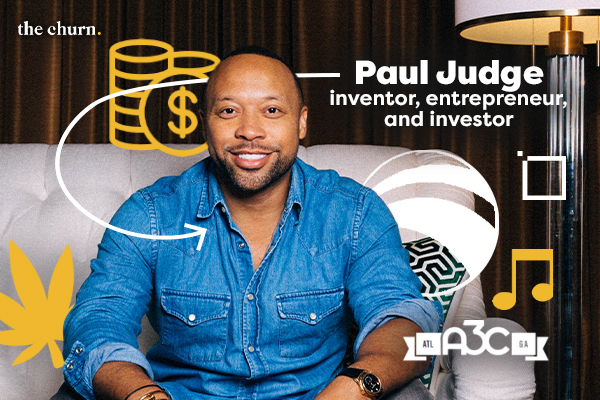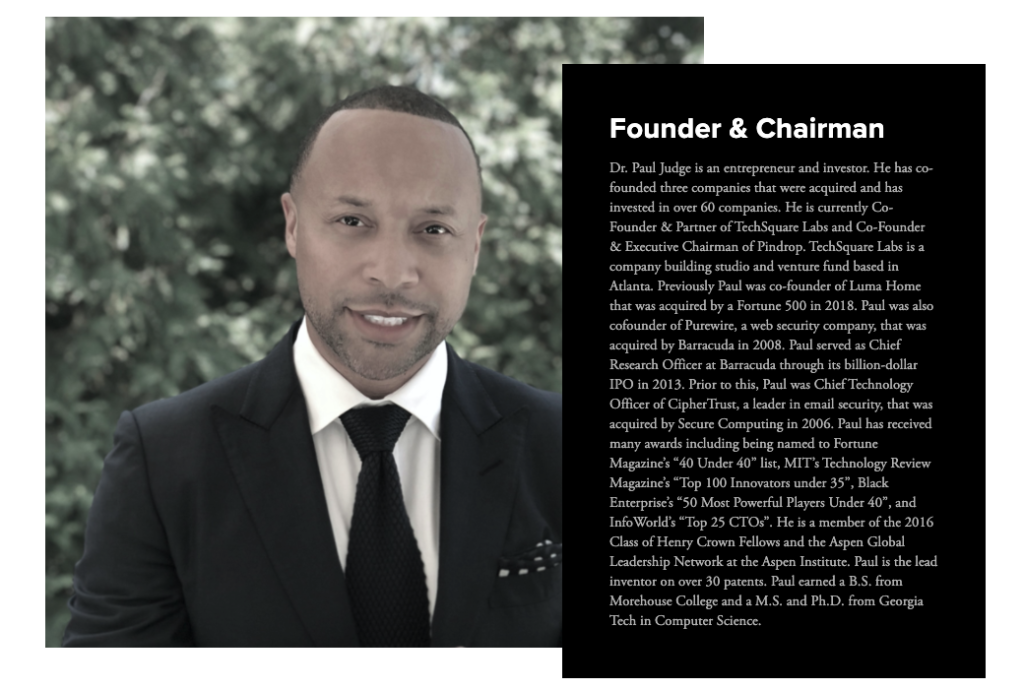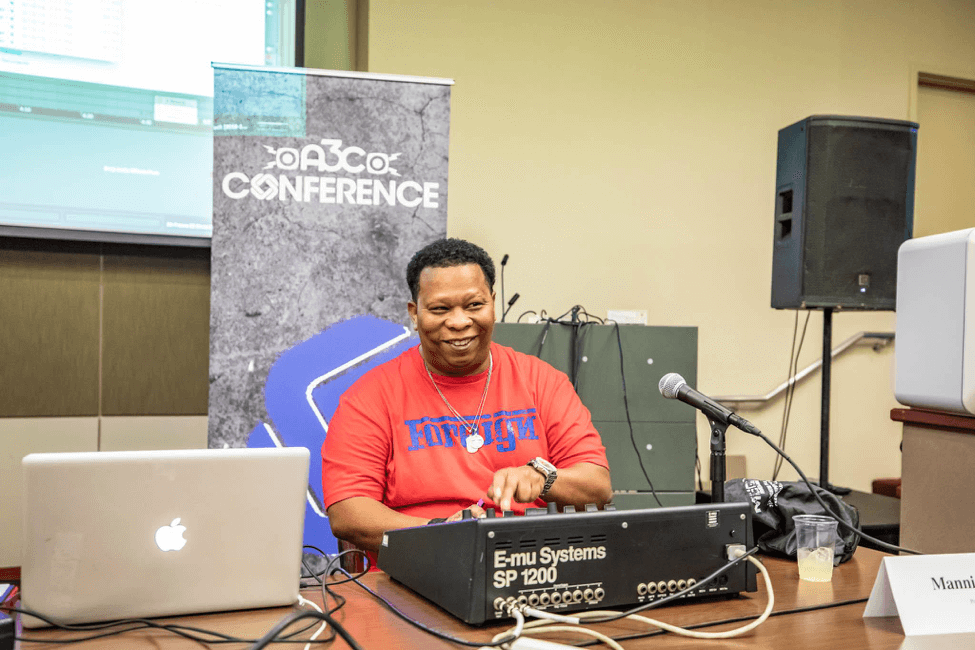The Churn
What The Wall Street Journal Doesn’t Know About Paul Judge
Mike JordanNovember 10, 2020

ED NOTE: Hey folks, it’s Mike Jordan, Butter’s EIC. I write sometimes for a few national publications, including The Wall Street Journal, where I recently interviewed Atlanta-based technologist and entrepreneur Dr. Paul Judge.
In our conversation late last week, Judge shared what he’s currently learning by being involved in a variety of high-profile, high-aiming projects. To quickly run down a selected list for you, that includes:
- Greenwood (the digital bank he, Killer Mike, Ambassador Andrew Young and Ryan Glover recently launched)
- Softbank’s $100M Opportunity Fund (specifically created for founders and entrepreneurs of color)
- Agency Socialthèque (the Buckhead restaurant, located in Phipps Plaza, he co-owns)
- TheraTrue (the Georgia-based medical cannabis company he founded)
Our Q&A was limited to 1,000 words, which means not everything the highly successful Morehouse- and Georgia-Tech- educated investor and business leader said made it into the story.
But because you read The Churn, you get exclusives.
Here’s what Judge had to say about three very noteworthy topics: Atlanta’s innovation differentiator, medical cannabis, and what made hip-hop pay more attention to the tech sector.
What Atlanta has that makes it different from other world-class cities:
I don’t know another city that has this creative energy that Atlanta has.
Like with OutKast, you know, their ability to do storytelling — the art of storytelling, right? And you look at someone like 2 Chainz, and what they do in marketing and their ability to do branding. And then you look at someone like Killer Mike, and what he can do around taking a mission, and making it so eloquent and poetic on a track.
This creative energy, it exists in our music, it exists in our art, but then it comes out in our companies. It comes out in the way Coca-Cola presents itself, the way Chick-Fil-A presents itself, the way Home Depot has built their brand. That energy exists in each of these sectors.
In my opinion, other cities don’t have that. Of course they have their music, and of course they have their companies. But the creative energy that makes Atlanta is that core that I think is special, that lives on. And it pops up, I think, in everything we do here.
Why he got into the medical cannabis business:
Georgia decided last year to legalize medical cannabis. That’s an industry that’s really been unfair to minorities. Many are in prison, but on the other side of the world, as companies go public, there’s very little diverse ownership. So we started a company called TheraTrue to be a minority-owned medical cannabis company.
It really spoke to us, for one because there’s so much innovation that has to happen in that space around medical research and so forth. But also because there’s just been a lack of diversity. And so oftentimes we see a problem, we roll up our sleeves and try to go do something about it.

And there you just learn so much about, you know, how much innovation needs to happen around patients or around medical formulation, depending on what conditions a person is suffering from. If someone has cancer and someone else has epilepsy, there’s not precise formulations for those two different conditions. There’s so much research left to happen in that industry. And that’s where I think we’ll find success — when we go deep. I always say the money’s in the details.
Why he became a co-owner of the A3C Festival:
The interesting thing about A3C to me was it was this music festival that existed for 15 years. There are so many artists that are big now and made their way through that stage.
But it also had this educational component to it. It had this thing that happened during the day, where you could go in a room and hear Coach K talk about how he started Quality Control.
I was there one year and I was standing in the hallway, and I saw a guy walk by me with a beat machine in his hand. And I looked up and was like, “Yo, that’s Mannie Fresh… Where’s he going?”

He’s just walking through the hall, regular. I turned around and I followed him. He walked into a classroom and he plugged in, and he just started making beats. And I sat there for an hour and watched this man do his thing. And I’m not necessarily trying to learn how to make beats, but where else can we see a genius really revealing their creative process?
So I was like, well, there’s something special here. You’ve got business, and you have the creativity side, and then what we realized was, you know, it was one of the largest and longest-lived hip-hop festivals especially in this region, but there was no diversity in its ownership. There was zero Black ownership.
That feels like we should be more involved. And so I partnered with the guys at The Gathering Spot, and we acquired the majority of the company. What we then said was, “Look, this is the perfect base to build on.”
If South by Southwest was created right now in 2020, it would be in Atlanta. It would be based on hip-hop. But it would also dig deep into technology, deep into social issues. And we have the opportunity to make that.
So when we acquired A3C — another reason why it’s great to talk about connections and relationships — one of the first meetings we had was with the president of the Metro [Atlanta] Chamber [of Commerce]. And we said, “Hey, we think we can build Atlanta South by Southwest. And they said “That sounds great; we’d love to do it. We’re going to move the STEM festival that we were gonna do; we’re gonna move it and make it part of A3C.
Then we called Venture Atlanta, one of the biggest tech conferences here. They said, “OK, I love that; let’s partner. We’re gonna move our date and let’s all get aligned.
And then we talked to 2 Chainz and he said, “Oh, I want to be part of it. I want to invest and co-own it.” And just like that, within a week, the Metro Chamber, Venture Atlanta and 2 Chainz were all combined around this force. So it was really all about creativity in entrepreneurship.

